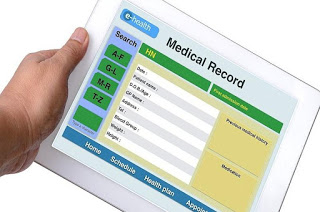Rural residents appear less likely to use electronic health records, Indiana study finds; lack of broadband is one reason

Telemedicine, including online health records, is touted as a way to improve rural health. However, rural residents are less likely to use such technology, according to a study of 34 Indiana counties with high rates of cancer deaths, published in the latest issue of the Journal of Rural Health.
The study by researchers at the Indiana University Cancer Center and the university’s Center for Survey Research found that rural patients were less likely to use electronic-health-record messaging systems, less likely to look up test results online, and less likely to use electronic medical records to “look for personal health information for someone else’s medical record,” which a caregiver might do. There was no significant difference in the use of email, texting or social media for health purposes, or in using electronic health records to ask a health-care provider to refill a prescription.
The availability of high-speed internet service, or lack of it, “emerged as a significant factor” in the use of electronic medical records, the researchers wrote. “Rural broadband has more commonly been discussed in terms of the benefit to economic development, but successful policies to expand broadband access also have the potential to improve health through patients’ access to, and use of, their EMR.”